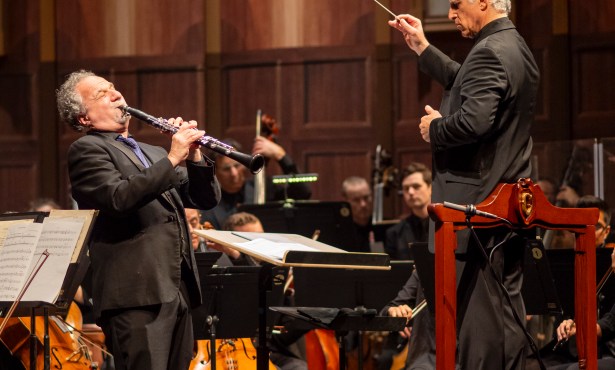Music Academy Gala and Summer Season Preview
Dedication Ceremony Celebrates Marilyn Horne
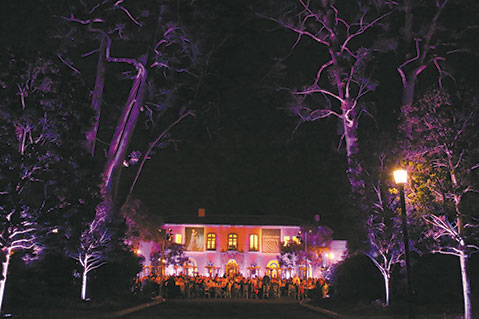
The Music Academy of the West rolled out the purple carpet on Saturday, June 4, and ushered in a new era for the Miraflores campus and for the school, which is entering its 69th season. Four great singers from the Metropolitan Opera, all of them Music Academy alumni, sang in an 18-part program honoring longtime vocal program director Marilyn Horne. More than 300 of the organization’s supporters turned out in formal attire for the event, which served as both a dedication ceremony for the newly renovated Marilyn Horne Main House and as a kickoff for the summer season.
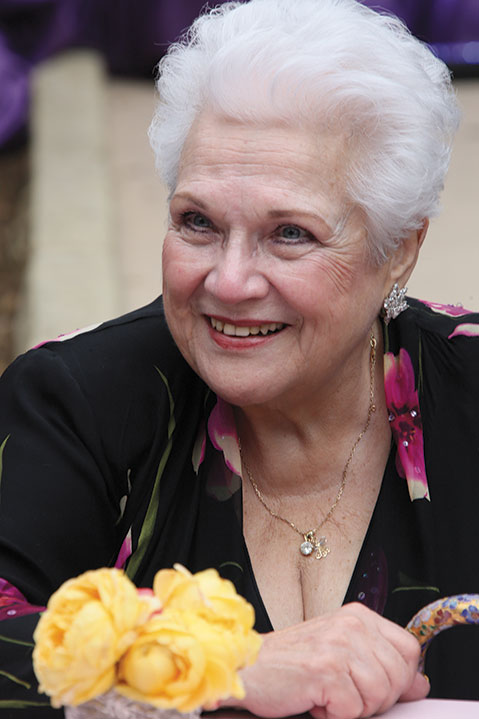
After cocktails and photo opportunities on the patio outside, guests entered Hahn Hall a little after 6 p.m. for a thrilling recital that featured music associated with Horne and her illustrious career. Pianists Warren Jones, Speranza Scappucci, and Nino Sanikidze took turns providing accompaniment as Simone Osborne, Ben Bliss, Quinn Kelsey, and Isabel Leonard performed under the artistic direction of Matthew Epstein. For the final number, soprano Leonard delivered a touching version of Leonard Bernstein’s “Somewhere,” a song that declares that there will be “a place for us,” meaning all of those whose dreams involve the profound human connection established through music. As an encore, the singers embodied this ideal by returning to the stage as a group and delivering an exquisite version of “Beautiful Dreamer” in four-part harmony. A few well-chosen words from Jones brought Horne to the stage for the first of two appearances that evening. Visibly moved, Horne proclaimed the recital one of the greatest she had ever heard, and praised the singers as among her favorites in a long and distinguished career as a mentor of young talent.
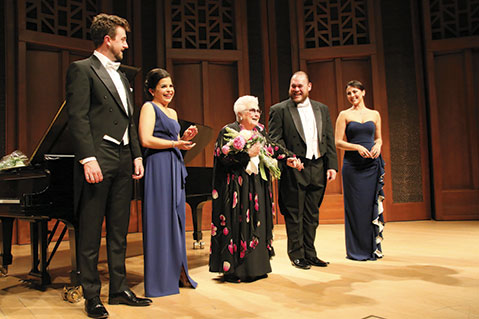
The giant purple curtain that hid the main house from view came up in stages. First there was an elegant dinner and remarks by Music Academy president and CEO Scott Reed, who called attention to the extraordinary generosity of Shirley and Seymour Lehrer, whose matching grant of $3 million enabled the completion of the work on the organization’s headquarters and named it for Marilyn Horne, and to the skill and determination of Sharon Bradford, who headed the team that produced the gala. After that, Horne took a turn at the microphone, praising the Music Academy’s board and staff for the effort and thanking the entire community for the honor. She spoke movingly of the legacy of Lotte Lehmann, who preceded her as director of the vocal program, and then joined Reed for the ceremonial smashing of a bottle of champagne to christen the building. Afterward, guests were invited inside for champagne, a jazz combo, and the chance to see firsthand what a beautiful job has been done restoring the house.
The Marilyn Horne Main House has been renovated in the image of the academy it serves, with a firm focus on the intrinsic qualities of the past and a passionate commitment to the promise of this new century. In classical music, the human bridges that connect generations one to another stretch back for centuries. It is not at all uncommon for top performers to bear pedigrees of mentorship that extend all the way back to the greatest composers of the standard repertoire. Horne’s connection to Lehmann, who was one of the founders of the Music Academy in 1947, is a perfect example of this, as Lehmann sang in important productions of operas by Wagner and Strauss when those works were still emerging as classics. What’s perhaps less commonly noted than this continuity toward the deep musical past is the fact that it implies an equal and opposite level of personal connection that stretches far into the future. If these practices of scholarship, training, and performance can bring people together today by exploring music that’s hundreds of years old, then it follows that hundreds of years from now there is a strong chance that the favor will be returned by musicians and audiences yet unborn. For many, it appears that this promise of an enduring tradition is as close to immortality as we get, and Saturday night’s gala, and the upcoming season at the Music Academy of the West, both indicate that the dream of great music is very much alive here.
Music Academy 2016 Season Highlights
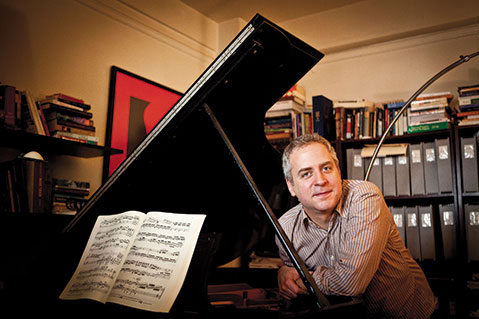
Academy Open House — Take in any one of four master classes beginning with string quartets at 1 p.m. in Lehmann Hall and extending through the rest of the afternoon, or come at 6 p.m. for a season preview discussion with composer Matthew Aucoin and MAW vice president for programming and education Patrick Posey, followed by a string quartet concert in Hahn Hall. All are free and open to the public. Tue., June 14, at the Music Academy
Jeremy Denk in Recital — One of the world’s most influential and spellbinding pianists returns as Luria Foundation artist in residence for a program that promises to reveal the deep connections that link medieval music to classical and modern compositions. No one does this kind of thing better than Denk. Sat., June 18, 7:30pm, in the Music Academy’s Hahn Hall.
Afternoon of a Faun — Audience and musician favorite maestro Larry Rachleff will conduct the first Academy Festival Orchestra concert of the season, which features Debussy’s groundbreaking composition based on the poem of the same name by Stéphane Mallarmé, plus equally thrilling material from Brahms, Respighi, and Berlioz. Sat., June 25, 7:30pm, at the Granada Theatre.
Rhapsody in Blue — Following on the success of last year’s New York Philharmonic community concert at the Santa Barbara Bowl, there will be a pair of concerts at the Granada over the Fourth of July weekend for which nearly 2,500 tickets will be offered at just $10 per seat. The program features the Academy Festival Orchestra under the baton of Larry Rachleff with guest soloist Jean-Yves Thibaudet for Gershwin’s classic Rhapsody in Blue. Rounding out this patriotic offering are two other all-American pieces, Dvořák’s Symphony No. 9, “From the New World” and the Short Ride in a Fast Machine of contemporary American composer John Adams. Sat., July 2, 7:30pm, and Sun., July 3, 2:30pm, at the Granada Theatre.
Gilbert Conducts Beethoven — The Music Academy’s four-year partnership with the New York Philharmonic continues as conductor Alan Gilbert mounts the podium for this program featuring Beethoven’s legendary Symphony No. 3, “Eroica.” In a nod to the Music Academy’s rich history of supporting such composers as Arnold Schoenberg, Gilbert will complement the Beethoven symphony with a 20th-century work about which he is equally passionate, Alban Berg’s famous Three Pieces for Orchestra. Sat., July 16, 7:30pm, at the Granada Theatre.
The Bartered Bride — Bedřich Smetana’s comic story of a young woman’s plot to fool a marriage broker into pairing her with her true love is an early example of the merging of classical with Czech folk traditions. Rising star composer Matthew Aucoin will conduct, and dancers from State Street Ballet will perform alongside the students from the Music Academy’s highly regarded vocal program. Fri., July 29, 7:30pm, and Sun., July 31, 2:30pm, at the Granada Theatre.

